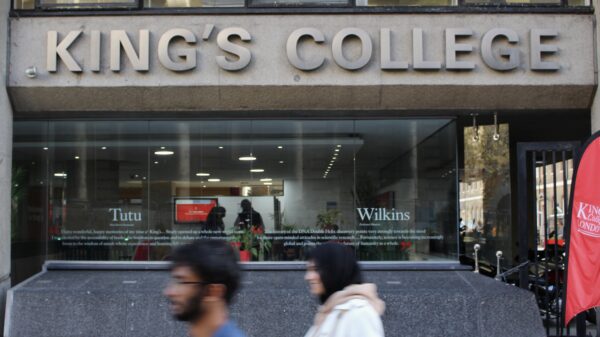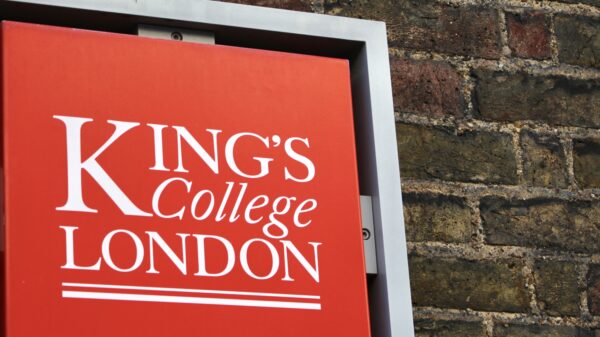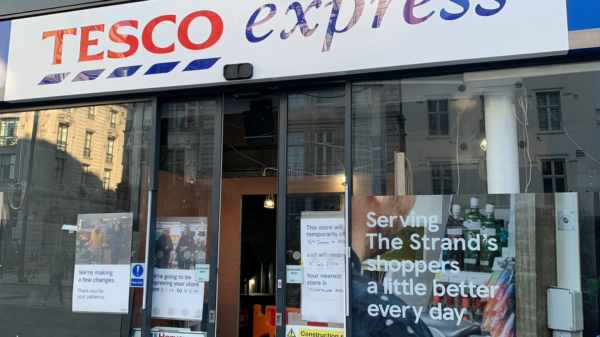Staff writer Connor Williams examines the potential effects the ChatGPT AI software could have on students and wider society.
A thought-provoking essay, an inspiring presentation, a heart-wrenching poem; all pieces of work that would take you hours of work which can now be written in a matter of moments. The ChatGPT software can do precisely this, and can do it well. We are at a tipping point, a place where our work is not rivalled by our peers but by a software programme. Skills and creativity once thought to be uniquely human are now shared by an emotionless AI programme. But not all hope is lost; while ChatGPT may seem like a new super competitor it is better to be embraced than run from.
Standing for Chat “generative, pre-trained, transformer”, the programme is able to learn similarly to you and me. When asked to write a poem in the style of John Keats, it will analyse all of Keats’ work and through detailed probability configurations, produce something that looks similar based on archetypal word choices, sentence and stanza structures, and usage of punctuation. This means that writing can be as quick as a Google search.
A study done at Oxford University has estimated that about “47 percent of total US employment is at risk” of computerisation. An unnerving statistic. However, we have faced job extinctions before with the birth of the internet. As well as this, 85% of jobs that will exist in 2030 have not yet even been invented. Jobs that current students will fulfil. In many ways this is encouraging, and we ought not to be frightened of this change, but rather use it to our advantage and adapt to a life where some art and writing will be separated from the artist, and some will not. The landscape is changing, that is now inevitable, we must change with it.
Usage of AI softwares like ChatGPT (it is not the only one) have already started making an impact in the world of education. While some teachers have started using it to formulate exercises for their pupils, students have also been using AI to write their essays for them. With this power at the disposal of every student with access to the internet, it seems as though the integrity of the traditional school or university essay is at stake. A notion celebrated by some, but the question remains, how can work be marked and authentically produced if the potential for cheating is so high?
To combat this, the rise in plagiarism detection softwares have also become more advanced. For example, King’s College London uses a software common amongst many other London universities named Turnitin that now has the ability to detect essays written by ChatGPT. But it appears to be a game of cat and mouse. As one software becomes more developed the other must follow suit, a challenge that has significant lag time. This could be a call for a radical adaptation of student assessment.
Whether AI is more of a friend than a foe is likely unanswerable. I suspect that, unlike our computers, the answer is not binary. Humans have been using tools for 2.6 million years; we are good at it, and it is one of the many things that separates us from most other animals. The point being that we create solutions to make our lives easier, not replaceable. As a general rule where companies can automate processes they do. For the first time we are seeing a singular piece of technology that is putting aspects of white-collar jobs at risk. This means that jobs like copywriters, novelists, coders, marketeers and many more alike are in danger. But it is still evident that humans are going to be necessary to either supervise AI or to do things that ChatGPT will never manage. For example, lots of journalism can now be done in a matter of moments like opinion pieces and sports reports. However, investigative stories and in person interviews are unlikely to be affected. It could even be argued that AI only puts aspects of jobs at risk and simply refines and reshapes what skills we need to do them.
AI programmes are already being used in harmony with the hospitality industry without making pre-existing workers redundant. An AI based programme named ClearCOGS is able to manage supply and demand of produce for restaurants and inform managers of what is needed meaning that they can carry on with other tasks without the worry of inventory. I may be putting too much faith into how quickly we will all adapt to this rapidly growing area of technology. But where AI removes obstacles, it will also make room for new pathways. When the lightbulb was invented candles became less useful, but the lighting industry was not damaged, merely evolved.
One pathway that I see becoming clearer is the value of context and authenticity. If we are to live in a world where our opinions can be formulated and worded by a computer, then I am not sure that I want to read about them. Part of the beauty of an essay or piece of poetry is that it has come from a living thing: a thought, a feeling, an idea. The context surrounding what we read can sometimes be just as, if not more, important than the content we are reading. I would much rather read a political opinion column by someone who has been inside Westminster than an account that has been programmed to lean towards a certain bias. Some may contend that if I could not tell the pieces apart then what difference does it make? To that I argue that the original Mona Lisa and a very convincing AI forgery do not have the same value.
From the wheel to the internet, human inventions have made us adapt to the problems they have caused and the treasures they have brought. ChatGPT and similar programmes are just one more invention that we must be prepared for, especially for students entering a landscape where AI will become more common. A world where we can either compete with or utilise artificial intelligence is here. The option of how we respond to it is ours, what will you do?


















